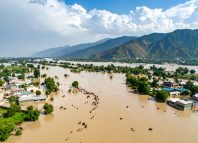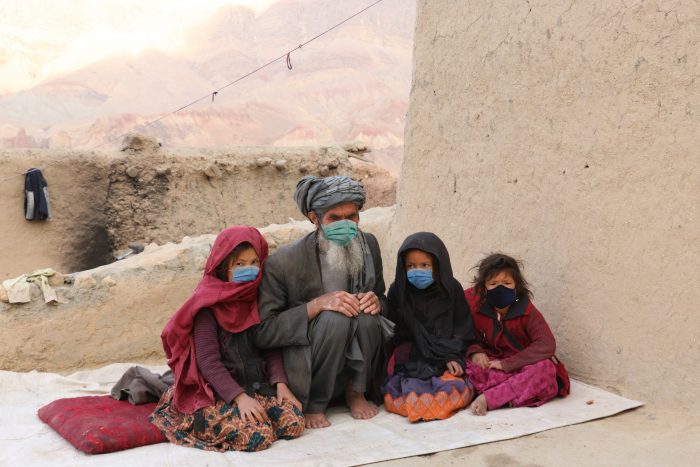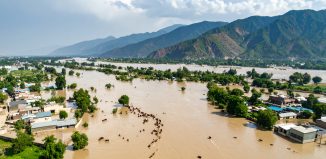Left in darkness and isolation
“Eleven years ago, my wife died during child-birth at home as I could not afford to take her to the hospital,” shared seventy-year-old Jaabir, father of five young daughters.
A year after his wife passed away, Jaabir was diagnosed with a visual impairment in 2012. He did not earn enough money, and could not afford medical consultations or treatment for his impairment. As a result, he soon lost his vision. “I used to work as a farmer on our two-acre property and took care of the eight sheep we had as livestock. Unfortunately, I was unable to work after losing my eye-sight. It even became challenging for me to keep up with my daily routine.”
Jaabir’s primary source of income is cash cropping on his agricultural land and livestock. His two elder daughters, aged 19 and 21, take care of the livestock, collect their food and nurture them. “My daughters are unable to do farming alone as it is a physically exhausting job. The neighbours help us with farming activities on our land. We are able to earn an estimate income of AFN 52,388 per annum (Approx. USD 500) by selling harvested crops and wool and milk from our agriculture activities and livestock. The income, however, is insufficient to address the needs of a family of six members.”
With their father losing his vision, and partial livelihood source, Jaabir’s daughters were unable to attend school. “I have to rely on my elder daughters to step out to work and bring home some money and food to fulfil the needs of their younger siblings. During the severe winters, they have to go out to collect shrubs, wood, and animal excrement to build fire to keep our home warm.”
Due to the rising conflicts in Saighan, a district of Bamyan province in August 2021, all the residents of Ab Gaj, Jaabir’s home-town, left their homes in search of safety for their loves ones. “Our family stayed behind as we did not have another place to go to nor could we afford to travel. We did not have any relatives’ home to seek refuge in as well. The village was empty. None of the villagers were able to help us move or support us financially as they too were in chaos and struggling to reach safety and survive the difficult time. I was the only grown adult left in the village to protect my family and give hope to my daughters to stay strong and brave. I met many sleepless night as I feared an attack in the middle of the night.”
Since Ab Gaj was a remote village, Jaabir’s family had limited access to health facility, schools, or sanitary facilities. Jaabir and his family were left alone to live through a difficult and testing time. “Sometimes we receive food and clothing from relatives and friends. Some humanitarian organisations, working in the area, have also provided food assistance to us. I am grateful to all those who have helped us in these challenging times. But we need more assistance and aid to make ends meet. We do not have electricity at home. We use candles when it gets dark. At times when we do not have candles or fuel to light up the candles, we have to cook food before it gets dark. I do not know how and when this dark time will end.”
Jaabir is hoping to receive assistance from government and humanitarian aid organisations to meet the basic necessities of his family such as food, sanitary facilities, electricity, warm clothing and a safe and warm shelter.







